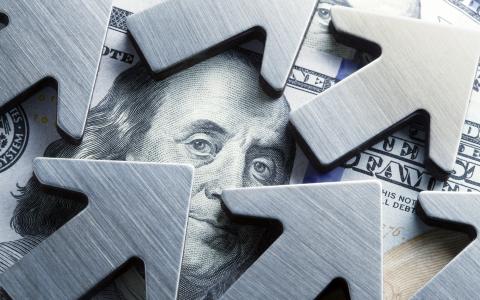
(The Spec) -- When it comes to cars, tunnels, and rockets, Elon Musk thinks big. The same is true for his household finances.
The billionaire recently took out $61 million (U.S.) in mortgages on five properties in California, four in the Bel Air neighborhood of Los Angeles and one in Hillsborough, in the Bay Area.
The Morgan Stanley loans, signed in the final days of 2018, represent about $50 million in new borrowing. One refinancing on a 20,200-square-foot property he bought in 2012 for $17 million turned a $10-million loan into a $19.5-million debt.
His monthly payment: about $180,000.
The loans show how even the wealthiest people use mortgages to maintain liquidity. Musk, with a $23.4-billion fortune, according to the Bloomberg Billionaires Index, is among ultra-wealthy property owners including Mark Zuckerberg, Ken Griffin, and Beyoncé and Jay-Z who have taken out monster mortgages. Citadel founder Griffin stands out, with two secured in 2016 for a total of about $114 million.
Representatives for Musk at Tesla didn't respond to emails seeking comment. Susan Siering, a spokesperson at Morgan Stanley, declined to comment.
Huge mortgages like Musk's are lending-world unicorns. Across most of the U.S., a loan falls into the jumbo category (also called nonconforming) once it exceeds $484,350. The definition of a super jumbo isn't as clear, but for a wealth-management operation catering to ultra-high-net-worth clients they might start in the $2-million to $2.5-million range.
"Once you get above probably $10 million, I'd describe it as 'by appointment,"' said Michael Blum, group managing director and head of the banking group at UBS Wealth Management USA. At that level, the number of loans "thins quite a bit," he said.
More than 230 single-family mortgages of $10 million to $20 million were outstanding in 2018, with 75 per cent taken out since 2013, a CoreLogic analysis of U.S. public data found. More than half were secured by homes in California, said Frank Nothaft, CoreLogic's chief economist. About 180 were refinancings.
Over the years, Musk has used his shares in Tesla Inc. to obtain personal loans. About 40 per cent of his stake in the electric carmaker was pledged at the end of 2017, according to a regulatory filing. Musk also inquired with at least one bank last year about a personal loan tied to his stake in rocket company SpaceX, a person with knowledge of the matter said at the time.
Musk, 47, doesn't take a salary from Tesla, and he's repeatedly gone to the market to buy the carmaker's stock in a show of confidence in the company, which has never turned an annual profit. He recently put one of his Los Angeles-area homes on the market for $4.5 million.
He's played down the extent to which wealth motivates him, tweeting in October that he had "very little time for recreation" and saying that he didn't have "vacation homes or yachts or anything like that."
Providing mega-mortgages helps bank profit margins in the short run, and is highly strategic long-term.
"To get a new relationship on the investment side with a new high-net-worth client is very difficult," said Gauthier Vincent, lead wealth management consulting partner for Deloitte. "On the credit side, it's a much easier way to get in, if you're really good at it, than to try and compete on the investments."
Why do the ultra-wealthy even need to take out loans? Some, like Musk, are asset-rich but relatively cash-poor. Lending activity picks up as tax time approaches, with clients either fully invested or not as liquid as they need to be to make a tax payment, UBS's Blum said.
"We try to educate clients that what you probably don't want to do is sell stocks or bonds and create yet another tax liability by selling so you can pay your taxes this year," Blum said.
Ultra-wealthy investors may also find mortgage interest a relatively small price to pay for liquidity.
"With rates still historically low, it's still a very attractive alternative," Blum said. "Clients would just rather not tie up all the liquidity in a purchase of a very expensive property."



